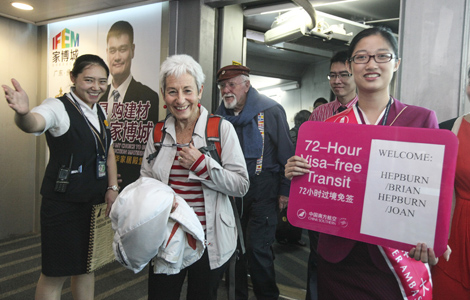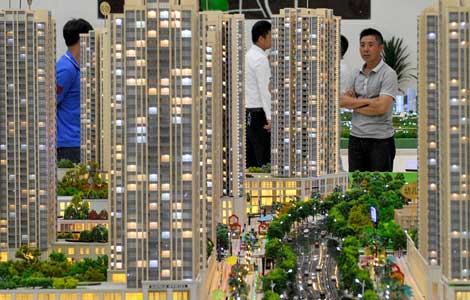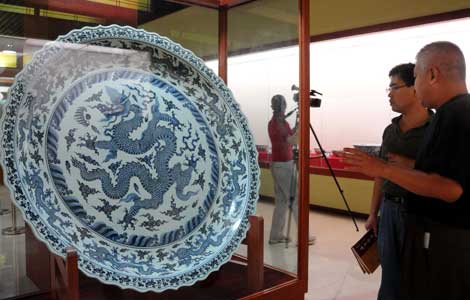Farmers see hope of city life in hukou reform
Updated: 2013-08-03 03:35
By HUANG ZHILING (China Daily)
|
||||||||
For Min Jia, the relief concerning his son, 5, is palpable.
"I have worried for such a long time about where he will attend primary school next year," said the 29-year-old farmer from the Haoxi ethnic Hui township in Qingchuan county, Sichuan province.
Min has worked with a property management company in Guangyuan city, which administers Qingchuan, for about 10 years. His son, Min Jianhong, lives with him in a small apartment the family rents in Guangyuan.
But as neither Min nor his son have a hukou (residence permit) in Guangyuan, Min has been worrying that his son could only attend a rural primary school in their home township in Qingchuan which is about two hours' bus ride away.
"Thanks to a new government policy, however, I have found hope my son might get a hukou in Guangyuan and attend a school in the city next year," Min said.
Min's hope originates from a policy announced on Tuesday by the Sichuan provincial department of public security.
The policy stipulates that those who have secure jobs can apply for a hukou in large, medium-sized and small cities and towns.
The policy also applies to their spouses, children and parents who live together. The children include those who were born outside marriage.
"The ultimate goal of the policy is to offer equal treatment for both urban and rural residents in welfare benefits such as education and healthcare," said Ma Bai, an official with the Sichuan provincial department of public security who helped draft the policy.
In 1958, the government adopted the hukou system, which stopped people flowing freely between the city and countryside.
Thanks to economic reform and opening-up policies in the late 1970s, the control of the migration of the rural population into the city was lessened.
Farmers have the freedom of movement to work in the city. But without a hukou, their children cannot study in city schools.
"Without a hukou in Guangyuan, I have to pay 10,000 yuan ($1,639) for a school which is willing to enroll my son," Min said.
Li Zuojun, a researcher with the Development Research Center of the State Council who has long studied the reform of the hukou system, praised Sichuan for being a pioneer in allowing spouses, children and parents to apply for a residential permit.
"Many cities permit migrant workers to apply for a hukou. But their family members are not permitted to apply. Sichuan's new policy is a step forward in hukou reform. It is especially good for migrant workers' children as they can choose better schools in the city," Li said.
The cost of settling the country's rural workers into city life in the urbanization drive could be about 650 billion yuan a year, the equivalent of 5.5 percent of fiscal revenue last year, according to the Chinese Academy of Social Sciences.
"It is based on the assumption that 25 million arrivals settle in cities annually, with the government spending on making sure they enjoy the same benefits for urban residents, such as healthcare, housing and schools," said Wei Houkai, a CASS researcher.
Out of consideration for the high cost in accommodating the huge influx, Sichuan only gives priority to farmers who work in the non-agricultural sector or have lost their land in the application for a city hukou.
"Hukou reform has to be a gradual and considerate process. For example, the new policy, for the time being, does not permit migrant workers in Chengdu (capital of Sichuan with a population of more than 10 million) to apply for a local hukou (out of the consideration for the high cost of settlement)," said Yuan Gang, deputy chief of the Sichuan provincial department of public security.
Most Viewed
Editor's Picks

|

|

|

|

|

|
Today's Top News
US to close some embassies on Sunday
Food program aims to address security
China faces world's worst managerial shortage
Soybean is king in American exports to China
China sails through 'first island chain'
US should reclaim 10% share
Chinese worry about image abroad
China blasts US Senate resolution
US Weekly

|

|
















